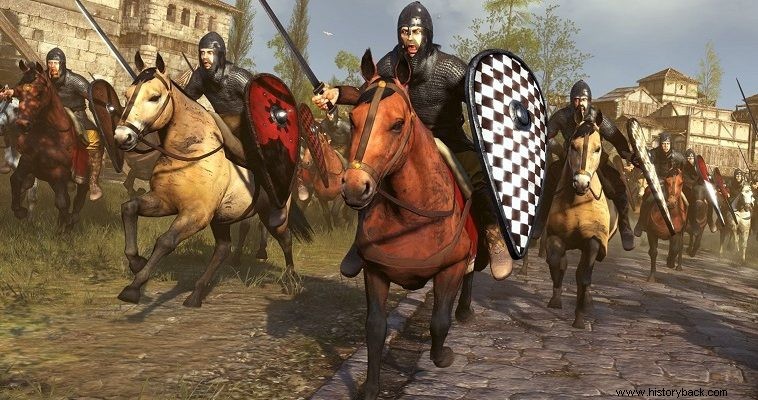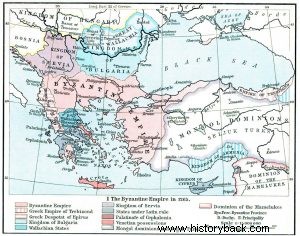
Little is known about Lycarius or Icarius, in Byzantine chronicles, the Italian knight who rose to become the arch-admiral of the Byzantine emperor Michael I Palaiologos, spreading terror among the Latins in general.
Licario also had Greek blood in his veins. He was born in Karysto, Evia, to an Italian father and a Greek mother. Poor Licario managed to enter the service of the local lord Gilberto da Verona and even entered into a relationship and marriage with the lord's sister, something unacceptable at the time. His wife's family pursued him and he fled to the Castle of the Wind Gates in Cabo d'Oro.
There, together with a small number of his followers, he successfully defended himself, in the first phase, and then counterattacked, becoming the scourge of the Latins of the region. Licario then joined the service of Emperor Michael, taking an oath of servitude. Michael reinforced him with imperial troops with the aim of liberating Evia from the Italians.
In 1272-73 the Byzantine forces under Licario captured four important castles in Evia. Then, according to Venetian sources, the emperor sent him to Asia Minor, where he managed to defeat the Turks.
In 1276, after the unexpected but nevertheless great victory of the Byzantines over the Latins in Dimitriada, in today's Volos, Licarios returned to Evia and conquered Karystos, now controlling a large part of the island. Until 1278 he had conquered all of Evia except for Chalkida which was held by the Venetians. He had a force of 200 knights and similar followers in the emperor's service.
Michael honored him with the office of Great Contostavlos (or Konostavlos), i.e. head of the western mercenaries of the imperial army, and then he became Grand Duke, i.e. admiral in chief. At the head of the imperial fleet, Licarius excelled, liberating islands and slaying the Latins.
He liberated Skopelos, Skyros, Skiathos, Amorgos, Kythira and Antikythira, Kea, Astypalaia and Santorini, but also the strategically important Lemnos, the latter after three years of fierce fighting.> At the same time he carried out raids against the Latins of the Peloponnese.
In 1279-80 he returned to Evia and at the head of Italian, Spanish, Catalan and German mercenaries crushed the forces of da Verona and the lord of Athens Ioannis de la Rosin a side-by-side battle at the battle of Vatonda, northeast of Chalkida. Licario's victory was absolute. da Verona and de la Roche were captured and their army disbanded. The two princes were taken to Constantinople where da Verona died, as Nikiforos Gregoras reports.
Licario failed to capture only the well-fortified and heavily garrisoned Chalkida. However, he controlled the rest of the island, while he soon liberated Sifnos and Serifos. They were his last hits. In 1280 Licario went to Polis where his traces disappear . Historians do not agree on his fate.
Some say he was poisoned by the Venetians in revenge. Others argue that he lived the rest of his years in the City precisely for safety as he had many enemies. Whatever happened Licario was one of the most important figures of the Byzantine Empire during the turbulent 13th c. although his contribution remains largely unknown to many.

The Byzantine Empire in 1265.
